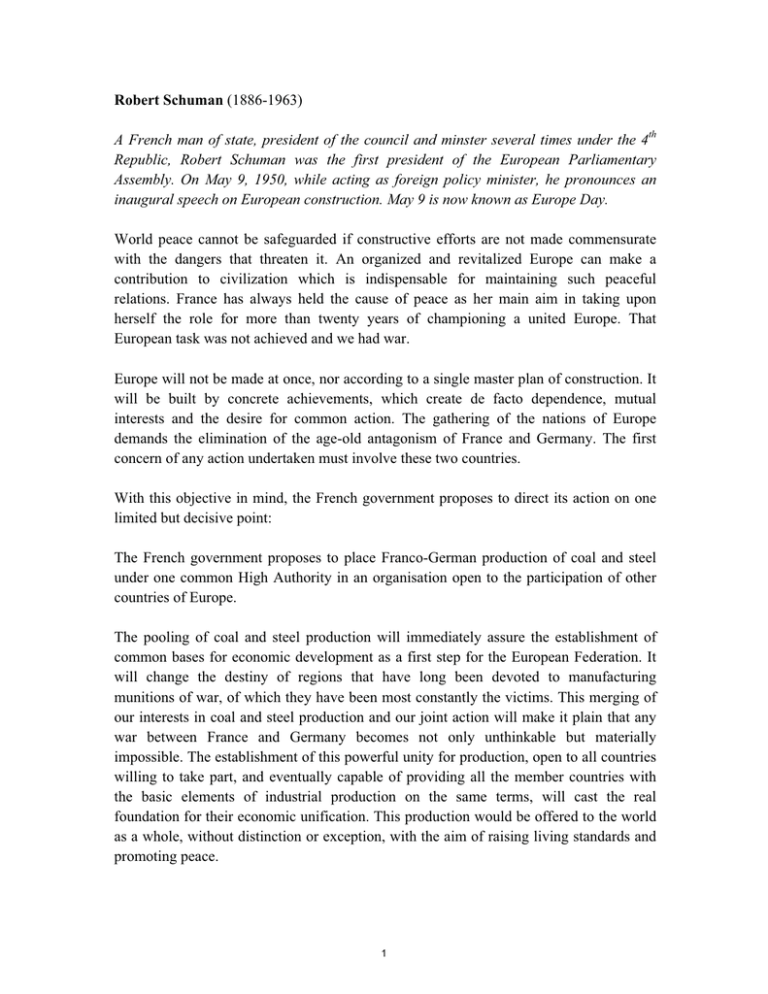A French man of state, president of the council and... Republic, Robert Schuman was the first president of the European... Robert Schuman
advertisement

Robert Schuman (1886-1963) A French man of state, president of the council and minster several times under the 4th Republic, Robert Schuman was the first president of the European Parliamentary Assembly. On May 9, 1950, while acting as foreign policy minister, he pronounces an inaugural speech on European construction. May 9 is now known as Europe Day. World peace cannot be safeguarded if constructive efforts are not made commensurate with the dangers that threaten it. An organized and revitalized Europe can make a contribution to civilization which is indispensable for maintaining such peaceful relations. France has always held the cause of peace as her main aim in taking upon herself the role for more than twenty years of championing a united Europe. That European task was not achieved and we had war. Europe will not be made at once, nor according to a single master plan of construction. It will be built by concrete achievements, which create de facto dependence, mutual interests and the desire for common action. The gathering of the nations of Europe demands the elimination of the age-old antagonism of France and Germany. The first concern of any action undertaken must involve these two countries. With this objective in mind, the French government proposes to direct its action on one limited but decisive point: The French government proposes to place Franco-German production of coal and steel under one common High Authority in an organisation open to the participation of other countries of Europe. The pooling of coal and steel production will immediately assure the establishment of common bases for economic development as a first step for the European Federation. It will change the destiny of regions that have long been devoted to manufacturing munitions of war, of which they have been most constantly the victims. This merging of our interests in coal and steel production and our joint action will make it plain that any war between France and Germany becomes not only unthinkable but materially impossible. The establishment of this powerful unity for production, open to all countries willing to take part, and eventually capable of providing all the member countries with the basic elements of industrial production on the same terms, will cast the real foundation for their economic unification. This production would be offered to the world as a whole, without distinction or exception, with the aim of raising living standards and promoting peace. 1 In this way, simply and speedily, the fusion of interests which is vital for the establishment of a common economic system will be realized. Thus the leaven will be introduced which will permeate and build a wider and deeper community between countries that had continually opposed each other in bloody divisions. By pooling basic industrial production and setting-up a new High Authority whose decisions will be binding on France, Germany and other member countries, these proposals will bring to reality the first solid groundwork for a European Federation vital to the preservation of world peace. […] Robert Schuman, Declaration on the ECSC (May 9, 1950) � 2 MIT OpenCourseWare http://ocw.mit.edu 21G.053 Understanding Contemporary French Politics Spring 2014 For information about citing these materials or our Terms of Use, visit: http://ocw.mit.edu/terms.

